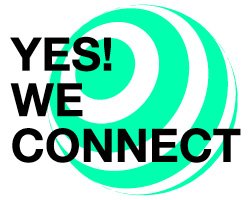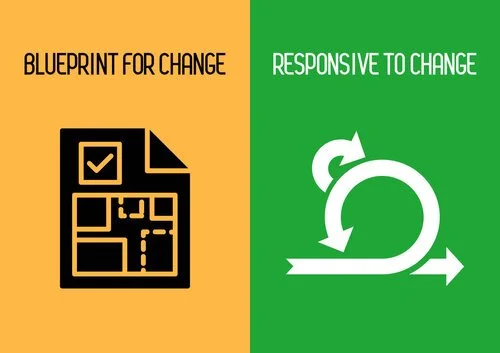What is The Future of Work really about?
On the 28th of November we are one of the partners of Onboard.Amsterdam. This year our role is different. We are moderating the Future of Work stage. To prepare for this we have been reading, thinking and talking a lot about this theme. Articles, blogs and vlogs that deal with robotization, artificial intelligence, the gig economy and so on. But the insight that struck us the most was the fact that we still perceive organizations as machines. And we still lead them as machines. Trying to control it. But the reality is that organizations are a lot more like living breathing organisms that change all the time. Check out this blog and interesting visual about this concept created by Think Visual.
Think visual: The future of Work
In this visual they refer to an article about organisational change and leadership in the age of complexity by Anthony Suchman. In the abstract he talks about how limited our succes of organizational change initiatives is because of the outmoded conceptual model: the organization as machine. He proposes an alternative conceptualization: the organization as conversation. An organization as self-organizing patterns of thinking (organizational identity and knowledge) and relating (organizational culture) that exist in the medium of human interaction in which we participate.
In the visual we recognise a lot of things that the corporate rebels have defined as The 8 trends that separate the most progressive workplaces from those riddled with frustration and despair. It’s what separates the bold from the boring.
Organizations as living breathing organisms
We really like the conceptualization of an organization as a living, breathing organism. Organizations seem to change all the time with new goals, values, partners, customers, shapes, employees, roles and responsibilities. They are in fact continuously changing systems. But do we make the change based on that concept? Do we see and steer them in a different light?
Are we moving from a hierarchical structures to a networked way of working?
Are we moving from profit as a driver to impact as a driver? What is the purpose of our organization?
Are we working together based on control or trust?
We came across this article about diplomacy at the office from The School of Life. The more work requires the use of the mind, the more ineffective a controlling way of working is. But there is hope, we can learn a lot from International diplomacy.
“The more worried, oppressed or anxious an individual feels, the less likely it is that the creative and delicate elements of their mind will ever be coaxed into action. You might be able theoretically to browbeat them into getting the job done – but it won’t be work you’ll ever have any use for.”
— The School of Life
Are we leading our organizations based on rules and command?
Or do we have leaders that are hosts and facilitators of important conversations?
Do we think we can control the future by making a blueprint for change?
Or are we developing skills to be fast and effective in our respons to change?
Are we engaging or involving employees?
After the plans are all cooked up in the top of the hierarchical pyramid, the second step is to increase understanding and facilitate employee engagement. If you look at it this way employee engagement sounds a lot a like a top down way of management. In this era of change we might need to truly involve everyone, use all wisdom, create together. In the abstract of Anthony Suchman he writes that in this age of complexity we need mindful participation: reflecting on and talking about what we are doing together here and now.
Are we fostering homogeneity or are we truly loving and embracing diversity?
And last, but definitely not least, working in a modern way might have everything do with truly loving, and embracing diversity. Are we hiring people to ‘fit’ in our culture? That would have worked really good in a factory with "low-difficulty" tasks. Not so much in a modern organization with "high-difficulty" tasks and the need for innovation. Check the article: The Danger of Hiring for 'Culture Fit'.
“So, although people conceptually understand that diverse thinking is needed, it is not tolerated, let alone embraced, by most. ”
— Stephen Shapiro - Inc.com
We don’t need to embrace diversity just because it’s the ethical thing to do but also because it’s necessary to stay alive as a company. According to Paolo Gaudiano the inclusive enterprise will outperform companies whose human resources continue to be managed in traditional ways. The future of corporates is in the hands of leaders who understand that there is no business case for homogeneity, and that the best way to succeed is to embrace individual differences, and to create an environment where all employees can bring to the table their full range of professional skills and personal traits that makes them unique and productive contributors to the success of any organization.
“Many leaders, including some whose heart is in the right place, believe that performance should have nothing to do with gender, skin color, sexual orientation or any other personal trait, taking pride in being “color-blind.” This view is both naïve and dangerous.”
— Paolo Gaudiano
‘Any other personal trait’. Hmmm thats’s interesting, let’s dig into that. We need to drop the average and focus on jaggedness: something irregular, unevenness, variability – the quality of being uneven and lacking uniformity. Isn’t it creativity, and individual voices that are needed from employees instead of being yet another resource?
“HR is basically transforming into “people’s science.” People responsible for it need to have a deep understanding of psychology along with the trends in the society and vision of the company. ”
— Masha Moisseyeva
I will be hosting the future of work stage at Onboard.Amsterdam. I want to ask all the speakers about their vision of the future of work and the concept of organizations as living breathing organisms. On stage will be: Coen Dieckman of Swapfiets, Hans Meyer of Zoku Hotels, Sarah Cordivano of Zalando and many more.
Do you have a good question for them, please let me know in the comments.
Do you want to be there, go ahead and buy a ticket. See you there!
Frank Philips
Phone: +31 6 41189753
E-mail: frank@yesweconnect.nl













